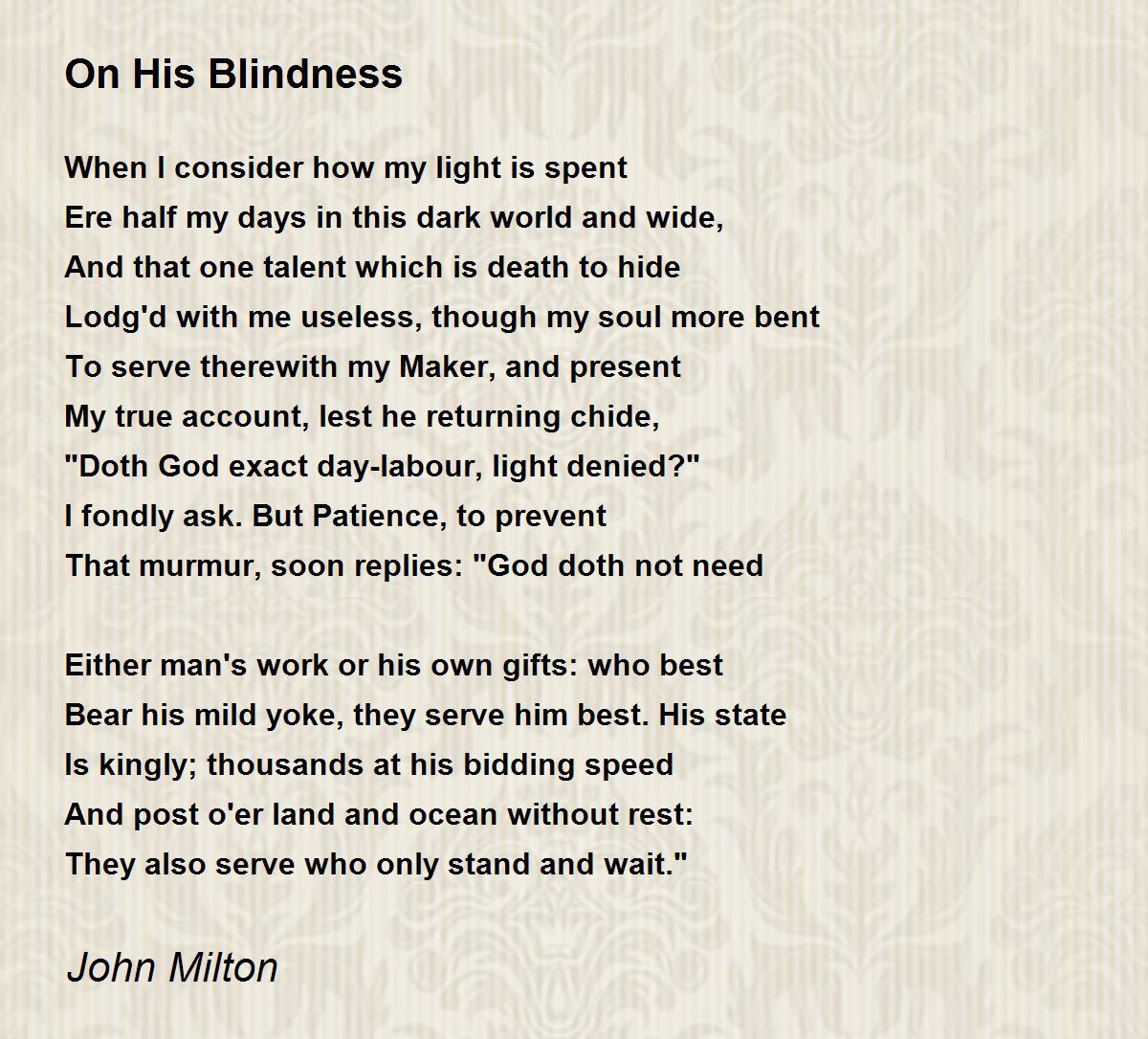John Milton’s
poem “On His Blindness” is an autobiographical sonnet in which Milton meditates
on his own loss of sight. For most of his life, Milton had been able to see
perfectly, but his late-night reading and writing on behalf of the government
of the short-lived English Republic, in which he held a very prominent
position, helped ruin his eyesight. This sonnet—written in the “Petrarchan”
rhyme scheme associated with the fourteenth-century Italian poet Francesco
Petrarca—is divided into an eight-line “octave” and a six-line “sestet.” The
octave rhymes abba abba.
The sestet rhymes cde
cde. The sonnet is, therefore, a typical Petrarchan sonnet in
form, but in subject matter, the poem departs from the topics usually
associated with Petrarchan poems. Petrarch (the English version of Petrarca’s
name) was most famous for writing about love; Milton departs from that
conventional topic to deal with a very practical, very physical problem, but a
problem with many broader spiritual implications.
By beginning line one with the word “When,"
Milton immediately signals that he is opening with a subordinate clause (a
dependent clause) that introduces the main idea to follow. Beginning the poem
this way creates a certain suspense; the main idea is postponed so that we have
to continue reading in anticipation of its eventual arrival. Shakespeare also
often used this kind of sentence pattern in constructing his own sonnets. By
opening with a dependent clause, Milton heightens our sense of anticipation by
delaying the key statement.
The word “consider” implies careful, rational thought
rather than purely emotional reaction. Here and throughout the poem, the
speaker uses his reason, which Renaissance Christians considered one of the
greatest gifts that God had bestowed upon human beings. The ability of humans
to reason, they believed, linked them to God and distinguished them from
animals. The speaker feels that his “light” is “spent” (extinguished) in
several senses of the word “light.” This word clearly alludes, at least
eventually, to the speaker’s loss of sight, but "light" may also
suggest one’s intelligence. The opening line may at first seem to mean “When I
think about how I have used my intelligence,” but it soon comes to mean “When I
ponder how my ability to see has become extinguished.” This latter meaning is,
of course, foreshadowed by the poem’s title.
The idea of losing one’s sight is obviously a deeply
troubling one. The blind person is suddenly at risk in all kinds of ways. The
speaker in the poem feels vulnerable; he can no longer literally see his own
way or easily protect himself from dangers. The special tragedy of
this particular speaker is that he has lost his sight at an unusually early
stage of life. Rather than becoming blind when elderly, he has become blind in
middle age. He now inhabits a world that seems “dark” (2) in at least two
senses: it is no longer physically visible, and it is a world full of sin and
spiritual darkness. The world, moreover, is not only dark but also “wide”: the
speaker will somehow have to navigate, both literally and figuratively, in a
world which, because of its width or breadth, will prose many dangers. If the
speaker were confined to a single dark room, he might quickly and easily learn
his way around...

Comments
Post a Comment